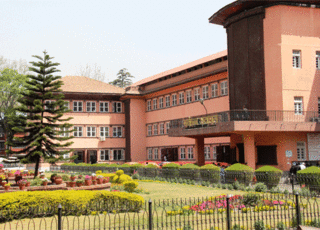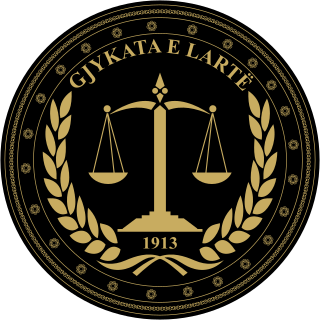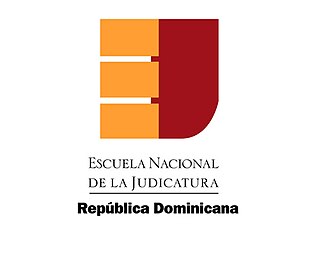Courts
The courts are composed of four levels of courts. The Supreme Court of the Dominican Republic is the court of last resort existing in the Republic and is, therefore, the head of the judiciary in the country. The Supreme Court is the final court empowered to administer justice, that means that its judgments can not be appealed, although they may eventually be reviewed by the same court through the use of re-consideration.

The Supreme Court of the Dominican Republic is the highest court existing in the Republic and is, therefore, the head of the judiciary in the country.
The supreme court is the highest court within the hierarchy of courts in many legal jurisdictions. Other descriptions for such courts include court of last resort, apex court, and highcourt of appeal. Broadly speaking, the decisions of a supreme court are not subject to further review by any other court. Supreme courts typically function primarily as appellate courts, hearing appeals from decisions of lower trial courts, or from intermediate-level appellate courts.
The Dominican Republic Courts of Appeal know, appeals to judgments, in accordance with the law; in the first instance of criminal cases to trial judges or their equivalents; tax attorneys, holders of organs and autonomous and decentralized state, provincial governors, mayors of the National District and the municipalities; and, other matters specified by law.
The Dominican Republic Courts of First Instance known in first grade of all the materials that do not are responsible by law to another court and other matters assigned to them expressly Act manner. There will be the Courts of First Instance or equivalent to the number of judges and territorial jurisdiction determined by law. Courts First Instance of the relevant judicial districts to the National District, Santiago, La Vega, Duarte, Puerto Plata, Barahona, San Juan, San Cristóbal, El Seibo, San Pedro de Macorís, La Romana, Valverde, Espaillat and Monte Cristi they are divided into chambers.

Santiago de los Caballeros or simply Santiago is the second-largest city in the Dominican Republic, and the fourth-largest city in the Caribbean. It is the capital of the Santiago Province and the major metropolis in the north-central region of the country. Its urban population reaches 550,753 inhabitants, and if rural areas are included its population rises to 691,262. Santiago is located approximately 155 km (96 mi) northwest of Santo Domingo with an average altitude of 178 meters (584 ft).

.

Duarte is a province of the Dominican Republic. It is named after Juan Pablo Duarte, founder of the Dominican Republic.
The Dominican Republic Peace Courts are single-judge courts and the judicial pyramid structure are lower-level courts. The law determines the number of Justices of the Peace and their equivalents, powers, territorial jurisdiction and how they will be organized.
Judges
It is understood by appointing judges, their appointment to judicial office for the first time, becoming part of the judicial career, in which case it is called "admission to the judicial career", or the appointment of the judge who, belonging and to that race happens to occupy, by any of the mechanisms regulated by the Law on Judicial Service, in its implementing regulations and the National Judicial College, a different function he occupied, the This is called "provision of judicial office".
Supreme Court Judges
The judges of the Supreme Court are appointed by the National Council of the Magistracy, in accordance with Article 179 of the Constitution of the Republic and the Organic Law of the National Council of the Magistracy.
When choosing the judges of the Supreme Court, the National Council of the Magistracy have which of them should occupy the presidency, and designate a first and second substitute to replace the President in case of absence or disability. The President and his deputies shall exercise these functions for a period of seven years, after which, and after performance evaluation conducted by the National Council of the Magistracy, may be elected for a new period.
In case of vacancy of a judge invested with one of the above stated qualities, the National Council of the Magistracy shall appoint a new judge with equal quality or attribute it to any of the judges of the Supreme Court.
Other judges.
To be appointed judge of the Judiciary, every candidate must undergo a public competitive examination system by joining the National Judicial College to be established by the law and have successfully passed the training program of the school.
This page is based on this
Wikipedia article Text is available under the
CC BY-SA 4.0 license; additional terms may apply.
Images, videos and audio are available under their respective licenses.

The Dominican Republic is a representative democracy, where the President of the Dominican Republic functions as both the head of the government and head of the multi-party system. Executive power is exercised by the government. Legislative power is vested in the bicameral National Congress. The Judiciary is independent of the executive and the legislature.

The Judicial Yuan is the judicial branch of the government of the Republic of China on Taiwan.
Chapter 9: Judiciary. Chapter 9 of the 1997 Constitution of Fiji is titled Judiciary. It is divided into twenty-two sections, setting out the composition and functions of the Judicial branch of the Fijian government.

The Judiciary of the Hong Kong Special Administrative Region is the judicial branch of the Hong Kong Special Administrative Region. Under the Basic Law of Hong Kong, it exercises the judicial power of the Region and is independent of the executive and legislative branches of the Government. The courts in Hong Kong hear and adjudicate all prosecutions and civil disputes, including all public and private law matters.

The courts of Scotland are responsible for administration of justice in Scotland, under statutory, common law and equitable provisions within Scots law. The courts are presided over by the judiciary of Scotland, who are the various judicial office holders responsible for issuing judgments, ensuring fair trials, and deciding on sentencing. The Court of Session is the supreme civil court of Scotland, subject to appeals to the Supreme Court of the United Kingdom, and the High Court of Justiciary is the supreme criminal court, which is only subject to the authority of the Supreme Court of the United Kingdom on devolution issues and human rights compatibility issues.
The Alaska Court of Appeals is an intermediate court of appeals in the State of Alaska's judicial department, created in 1980 by the Alaska Legislature as an additional appellate court to lessen the burden on the Alaska Supreme Court. The court of appeals consists of a chief judge and two associate judges, who are all appointed by the governor of Alaska and face judicial retention elections every eight years; the chief judge of the court of appeals is selected from among the three by the chief justice of the supreme court to serve a two-year term.

The Supreme Court of Nepal is the highest court in Nepal. It has appellate jurisdiction over decisions of the seven High Courts and extraordinary original jurisdiction. The court consists of twenty Justices and one Chief Justice.

The Supreme Court of Georgia represents the court of the highest and final administration of justice in the country. It was established in 2005 as the cassation instance court. It is located in Tbilisi, the capital of Georgia, in a building designed by Aleksander Szymkiewicz and built in 1894.

The Judiciary of Portugal is a system of courts that together constitute one of the four organs of Sovereignty as defined by the Portuguese Constitution. The courts are independent from the other three Portuguese organs of Sovereignty.

The Supreme Court of the Republic of China is the court of last resort in the Republic of China on Taiwan although matters regarding interpretation of the Constitution and unifying the interpretation of laws and orders are decided by the Constitutional Court of the Judicial Yuan.

The Judiciary of Spain consists of Courts and Tribunals, composed of judges and magistrates (Justices), who have the power to administer justice in the name of the King of Spain.

The Judiciary of Brazil is the Judiciary branch of the Brazilian government. The structure and the division of jurisdiction of the ramifications of the Brazilian Judiciary is defined in the Brazilian Constitution.

The Supreme Court of the Republic of Albania is the highest court of Albania and is the final court of appeal in the judicial system of Albania. It is composed of seventeen judges, the Chief Justice and sixteen Members.

The Federal Government of Brazil is the national government of the Federative Republic of Brazil, a republic in South America divided in 26 states and a federal district. The Brazilian federal government is divided in three branches: the executive, which is headed by the President and the cabinet; the legislative, whose powers are vested by the Constitution in the National Congress; and the judiciary, whose powers are vested in the Supreme Federal Court and lower federal courts. The seat of the federal government is located in Brasília. This has led to "Brasília" commonly being used as a metonym for the federal government of Brazil.

The Superior Courts of Justice, or High Courts of Justice, are courts within the judicial system of Spain, whose territorial scope covers an Autonomous Community, as laid down in the Organic Law of Judicial Power.

The National Council of the Magistracy, is the Dominican constitutional body responsible for appointing judges of the Supreme Court, the Constitutional Court and the Superior Electoral Court of the Dominican Republic.

The National Judicial College (ENJ in Spanish) is the body that is responsible for training and ongoing formation of all servers in the Dominican Judiciary. As an educational institution is recognized by the National Council of Higher Education as a Specialized Institute of Higher Studies.
The Judiciary of Azerbaijan exercises judicial power separately from the legislative power of parliament and executive power of the president.




















